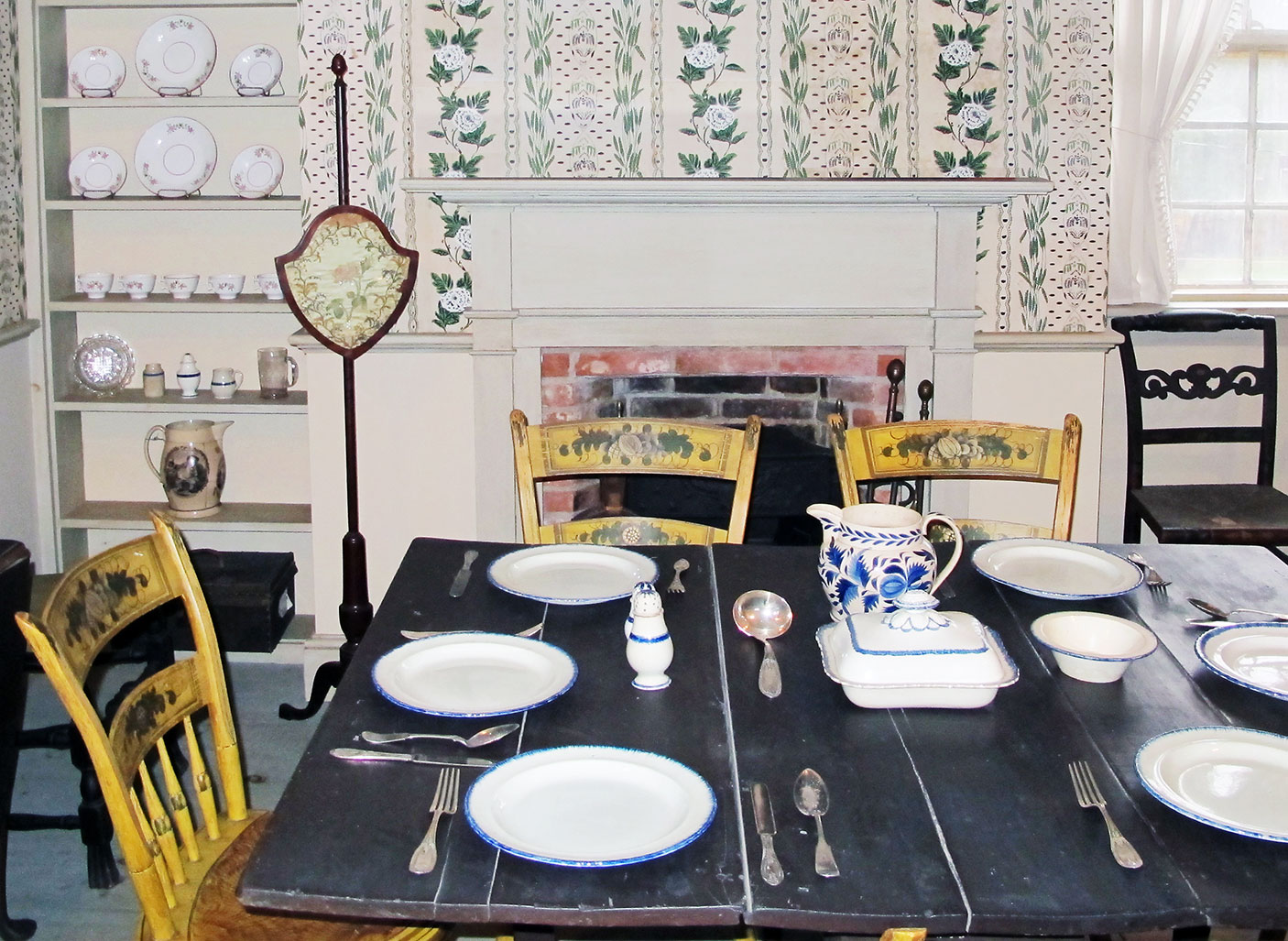 MENU
MENU
 MENU
MENU

A typical 19th-century middle-class room. It may be a bit more like what the Marshes aspired to, rather than what they had—at least, at the beginning of their lives together. Image courtesy of Pocumtuck Valley Memorial Association/Memorial Hall Museum.
Not only did he stumble into a fascinating study, but Dexter Marsh found a market for this rare commodity. As one of the few sources for fossil footprints, he was well positioned to ride the wave of popular interest in geology and fossils. The valley where he lived is now known as one of the richest lodes of dinosaur footprints in the world, and to him it seemed an inexhaustible resource.
The scientific appetite for specimens was voracious. Collectors paid him for specimens or traded one kind of fossil for another. By at least 1845, Marsh was earning enough that he could pay local landowners “for the privilege of digging fossils” on their properties. A landowner named Whitmore must have lived on a favorite dinosaur stomping ground, because on two occasions Marsh recorded paying him $5 (perhaps $160 today) to dig for several days each time. Sometimes he hired others to do his ordinary work around town or to help him with the hard labor of quarrying.
He could now afford to buy the schoolbooks he had lacked as a child, and more and better clothing for his growing children. The quality of the Marsh household furnishings improved. In 1842, his diary records the purchase of a secretary desk. Over the years, his family became the possessors of a dozen silver spoons, several looking-glasses—one with a gilt frame—a mahogany table, a mahogany bookcase. They adorned their walls with a steel engraving of a boat scene, an “illustrated chart” of some kind, and a mounted map of New England. In 1850, his oldest daughter, Arabella, then 15, acquired several new dresses and pairs of shoes, more like a middle-class girl than one from a poor family.
Even the quality of the little books in which Dexter kept detailed records of income and expenditures improved. His determination to give his children a more secure place in the world—and a better education than his father had allowed him--shows up in purchases of tickets to see a traveling model of Jerusalem on one occasion and an elephant on another. At least once, he took the children to Boston, but unfortunately, his terse logbook notations of income and expenses do not say what they did there.